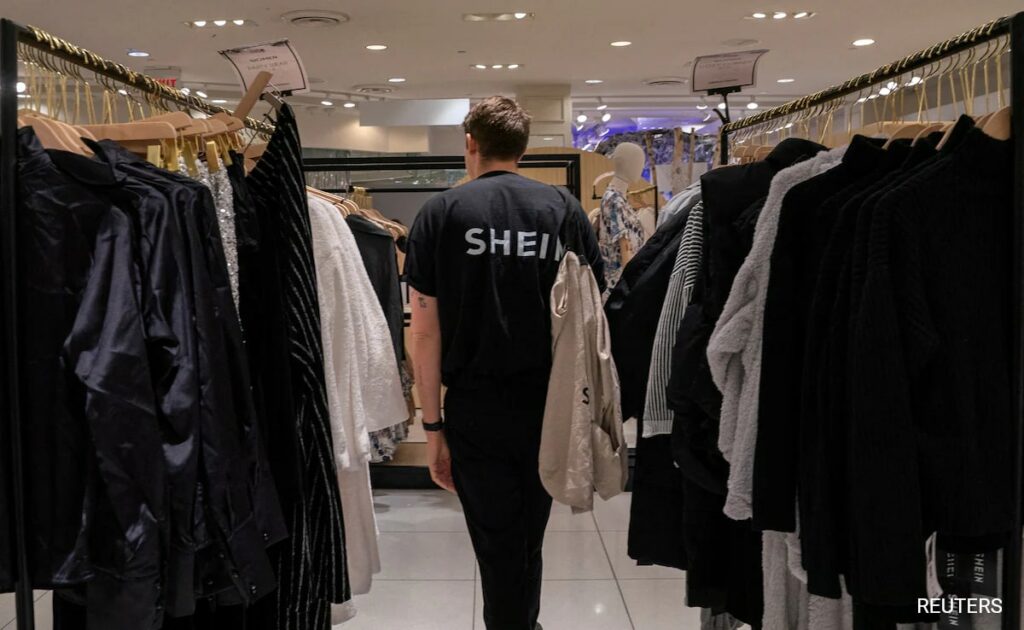Over a year after Chinese fast-fashion company Shein promised to tackle overwork and excessive work hours in its supply chain, a new report claims that the firm still has a problem. According to an investigation by Public Eye, a Swiss human rights advocacy group that first highlighted the alleged abuse in the Chinese company in 2021, workers in some factories supplying Shein are still working 75-hour weeks. The probe found that “illegal working hours and piecework wages remain a typical feature of the everyday lives of the workers interviewed”.
“The 75-hour weeks that we found out about two years ago still seem to be common at Shein,” the Swiss organisation said.
Public Eye interviewed 13 employees at six factories in Guangzhou in 2023. It found that staff worked an average of 12 hours a day, excluding lunch and dinner breaks, and usually for six or seven days a week. “Shein does not reveal its suppliers,” the organisation said in its report. However, it added that it established that factories were Shein suppliers through interviewees’ responses as well as the presence of Shein products.
According to the investigation, apart from long working hours, the workers’ wages had hardly changed since the 2021 report. The wages fluctuate between 6,000 and 10,000 yuan per month, which is equivalent to US $829 and $1,382. However, after deducting overtime pay, wages fell to about 2,400 ($332) a month. That’s well below the 6,512 yuan ($900) Public Eye says is a living wage in China, citing calculations by campaign group the Asia Floor Wage Alliance.
“I work every day from 8 in the morning to 10.30 at night and take one day off each month. I can’t afford any more days off because it costs too much,” one worker told the organisation.
Shien, on the other hand, told Public Eye that “long working hours are a well-known, long-term issue”. Notably, the company’s Code of Conduct for its suppliers states that workers should not work longer than 60 hours a week, including overtime.
Moreover, interviewees claimed that if they made a mistake, they would have to make any alterations to the clothes unpaid. They also claimed to have noticed a rise in surveillance cameras in the factories and said they believed the footage was sent to Shein in real time so regulations could be enforced. Public Eye also said it observed toddlers being babysat in the factories, teenagers packaging items and a smoking ban not being enforced.
However, in a statement to CNN, the company said that it does “not recognise many of the allegations in (Public Eye) report.
“The Public Eye report is based on a sample of 13 interviewees and, though all voices in our supply chain are important, this small sample size should be seen in the context of our comprehensive ongoing process to continually improve our supply chain, which involves engaging with thousands of suppliers and workers within the supply chain,” it added.
Also Read | “Going To Be Biggest Loser”: Indian-American Entrepreneur On Musk Picking China Over India
The company also said it continued to make substantial investments to strengthen governance and compliance among its suppliers. “These efforts are already delivering results, with our regular supplier audits showing a consistent improvement in performance and compliance by our supplier partners,” Shein said in its statement.
Separately, regarding children in factories, Shein told Public Eye, “We strictly do not tolerate child labour. We treat any violations with utmost severity. The company acknowledged that some factory staff faced challenges of balancing work and childcare, which “can result in workers bringing their children to their workplace”. “Being aware of this, we provide financial support for suppliers to create childcare centres within or near their premises,” Shein said.
Notably, Shein is an online shopping retailer founded in 2008 that sells its cut-price fast fashion apparel all over the world. Public Eye’s latest report is a follow-up on its 2021 report, which found a number of staff across six sites in Guangzhou were doing excessive overtime.

